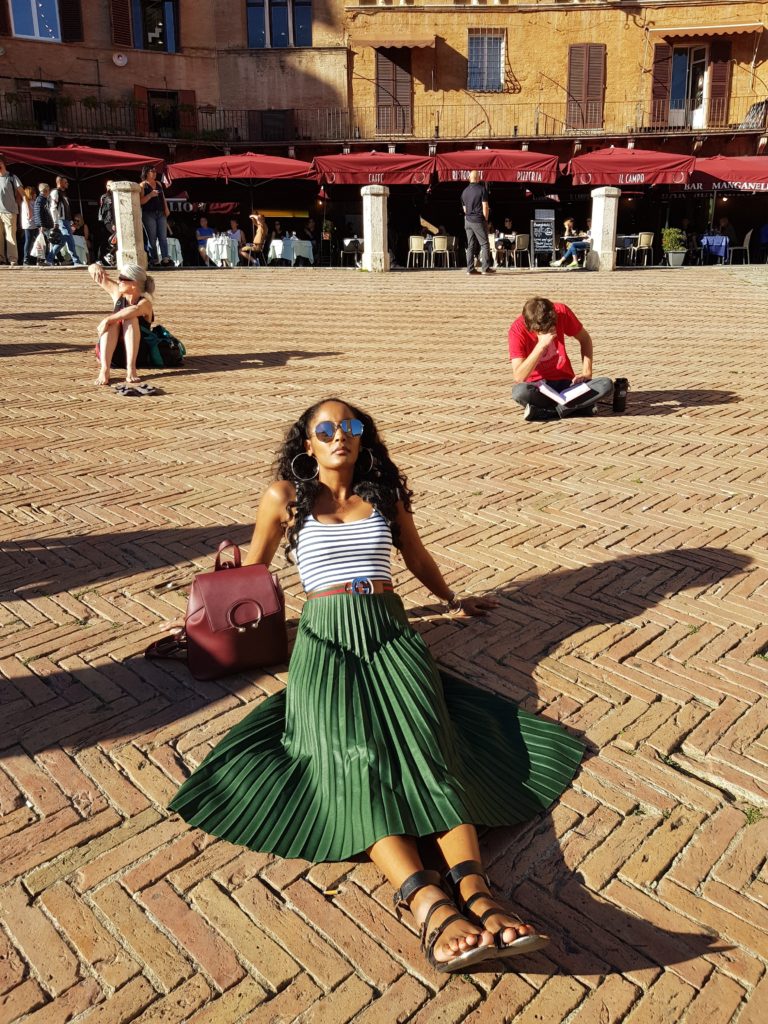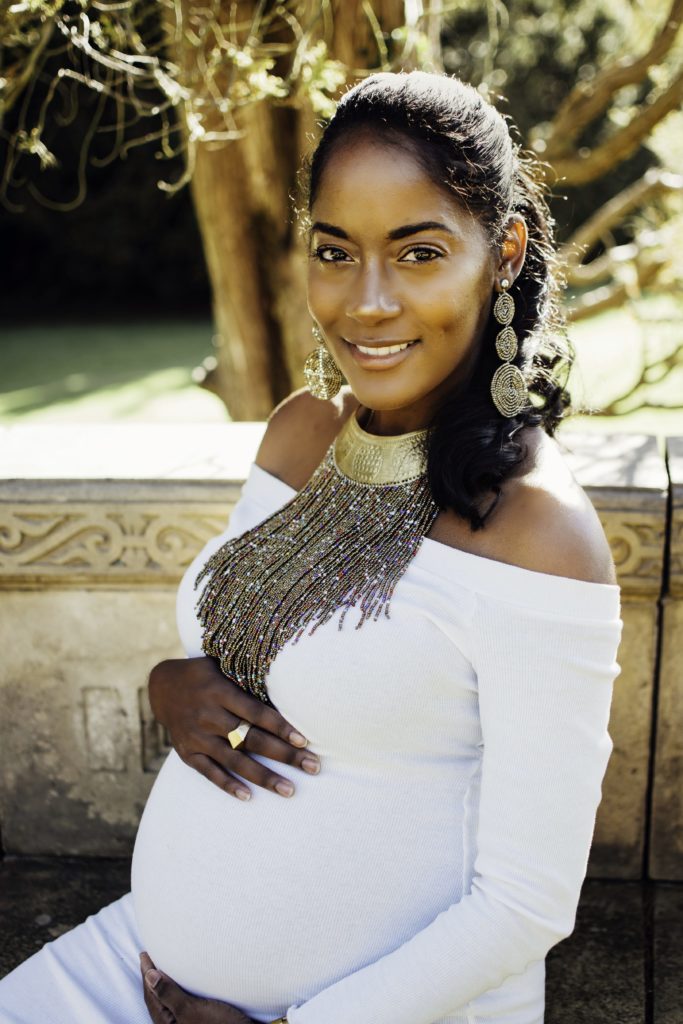Sherane Walker’s first foray into the expat life was at the age of 17 when she moved to the United States with her parents from her native Jamaica. But even then, she had an inkling that this would not be her final destination.
“Maybe a few years before, I started to explore opportunities in Southeast Asia because I thought that’s where I would’ve ended up,” Walker shared with Travel Noire. “But then I ended up getting married and my husband’s a British citizen and was living in the UK. So I ended up moving after we got married.”
Walker is a project manager for Merck, a multinational pharmaceutical company and one of the largest in the world. She managed to get a transfer to the UK, where she now resides with her husband and their two-year-old son.
What originally started as a two-year plan has quickly turned into eight years in the place she now calls home. Walker spoke with us about those rocky first years of her transition, why the UK is surprisingly not that different from the Caribbean, and how the move helped her realize her dream of becoming a mom to her ‘miracle baby.’
Travel Noire: West Indians typically do go to the UK a lot. So what’s been your experience?
Sherane: I think if you leave from the Caribbean and go to the UK, you’d find them very similar. It’s weird because you wouldn’t think it would be similar because it’s a different climate and everything, but I find there are lots of similarities. You have more access to your Caribbean culture. There is more Caribbean food. And the whole vibe of places in London is just very Caribbean, like in Brixton. I feel like the years I lived in America I was very Americanized. So moving from America to the UK was a much different experience where the first year, maybe a year and a half up to two years, it was very difficult because I had to get used to the culture here.
I didn’t think it would be so different because it was another English-speaking country. But the pace of life is so much slower and everything is smaller and things just happen at a snail’s pace. Whereas in America people are just constantly going and everything is fast-paced. It’s almost like I had to slow down and change my expectations. Once that happened, I appreciated the UK more.

TN: You’ve said you were only supposed to be there two years, and you’ve stayed for eight. What bonded you to the city?
Sherane: I don’t live in London. I lived on the outskirts for maybe three and a half years, but now I live in a proper suburb, a village almost. I like the quality of life. There’s green space everywhere. I’m a nature girl. I like to be outdoors, hiking in the forest and stuff. I think the government goes out of their way to protect nature whereas my experience in the US was everything’s built up and everything is all about development there. There’s an effort here to conserve nature and conserve that green space. And I really love that, especially now that I have a son, and he too likes to be outside.
TN: Europe is a stone’s throw away. Do you travel a lot?
Sherane: Before the pandemic, we traveled a lot. The access to different countries was one of the reasons why I moved here, and I just fell in love with it to the point where now I think if I moved back to the US, where would I spend my summers? It would have to be a bigger effort to fly to another country, longer flights, and more money. Whereas here you just jump on a train, and you’re in France.
I remember living there [US], and it’s very hard to find people with just one job. People would have their main job, and then afterwards they go to another job. But here it’s just different. There’s quality of life. Work ends at five o’clock, then you go home and spend time with your family. I really enjoy that about the culture here.
TN: How would you compare the cost of living to the US or even Jamaica?
Sherane: The cost of living is more expensive here. Real estate is very expensive here, too. To purchase property is much more difficult than in the US and salaries are lower here as well. I think I’m at an advantage because I still work for an American company.
TN: Is there anything they offer in terms of benefits that might make up for the lower salary?
Sherane: The healthcare system is free. In America, you have to have insurance, and it’s very expensive. One of the reasons why I moved here or something that pushed us a little was that I knew right when we were getting married that we would have difficulties getting pregnant. We were able to do IVF here for free. That was a huge advantage.
In the US you’d have to remortgage your house. I think it was almost $20,000 or something. We got three rounds of IVF for free. Before I did the IVF I could harvest my eggs and fertilize them for free. It was definitely a plus point for living here.
It’s something I’ve reached out to try to promote because I know it’s expensive in the US. I’ve tried to get women to look outside the US because even in Europe, you can still pay for it but it’s so incredibly cheap. I don’t think it’s free for everybody. If you come here you have to be on a certain kind of visa. So, because I was on a spouse visa and working towards my residency and obviously in the NHS system, it was free for me.
TN: Since you’re close by, would you consider moving to any of the other European countries?
Sherane: Oh yeah. We’ve thought about that several times. My husband interviewed for jobs in Italy and Greece. It’s definitely something that I’ve thought about. I’ve thought about moving to Portugal as well because what I like about some European countries is you get good weather. So yeah. it’s definitely something that’s on my bucket list.
Follow Sherane and find out more about her family life in the UK on Instagram.
Related: ‘I Want My Black Twin Boys To Know That There Is More Than America’







